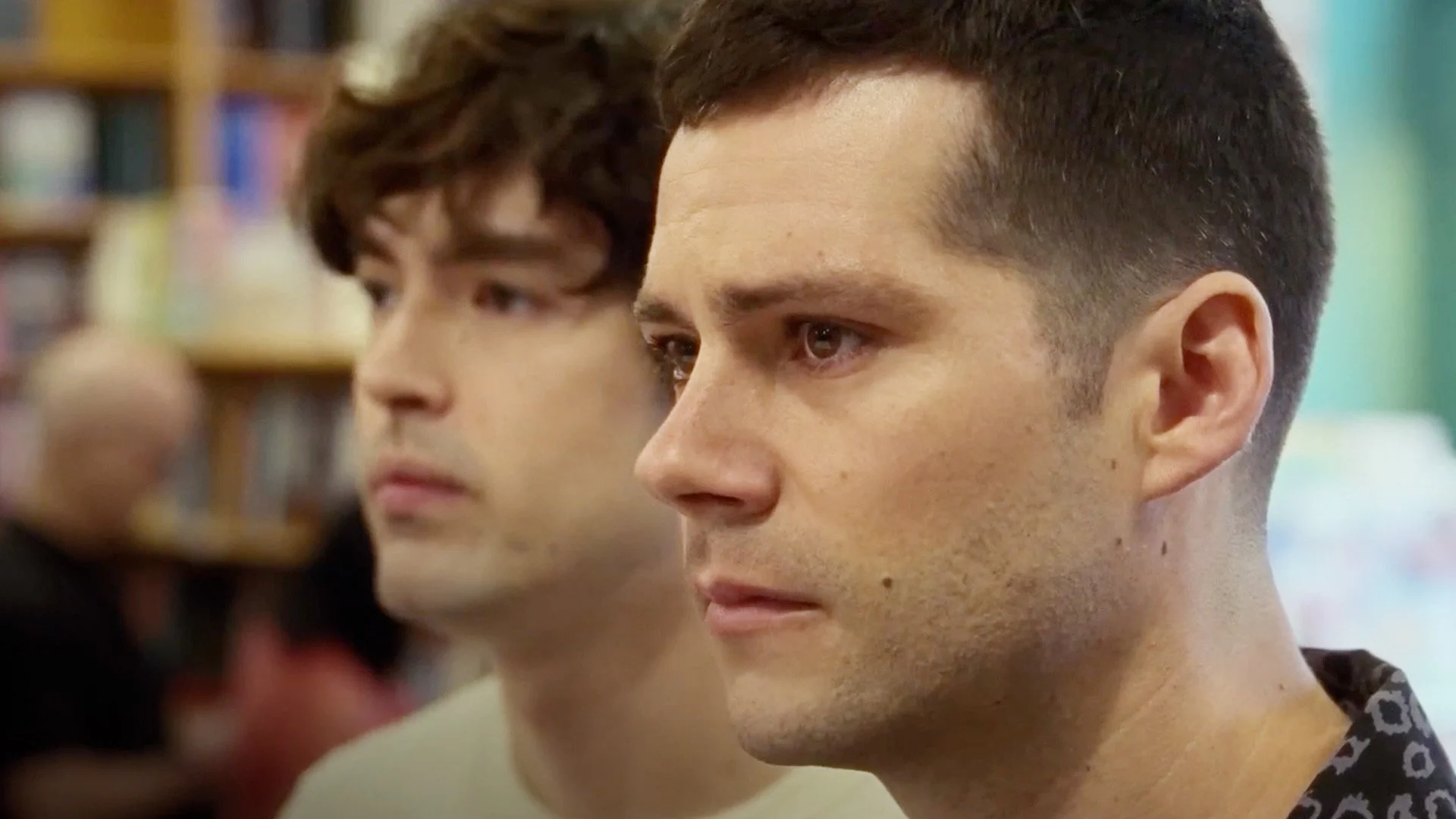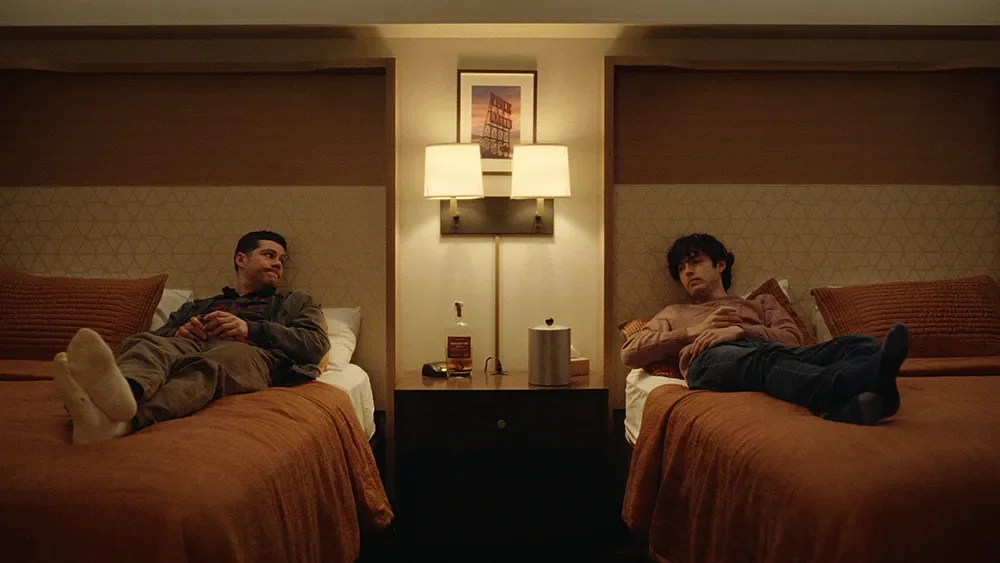James Sweeney’s Twinless is a harrowing yet funny exploration of grief, connection, and the fragile ways people seek meaning after loss. The film opens with a melancholy, Garden State-like atmosphere where conversations unfold with such natural ease that they feel lived-in, not performed. Clever framing tricks, mirrors, shifts in lighting, and sly compositions give the film a cool, offbeat texture that matches its tonal tightrope between comedy and despair.
The story follows Roman (Dylan O’Brien) and Dennis (Sweeney), two strangers who meet in a twin support group and strike up an unlikely friendship. What begins with empathy and shared wounds slowly unravels into something more complicated, even unnerving. The first-act reveal is a shocker: both hilarious and disarming in equal measure, transforming what could have been a wholly unlikeable character into someone oddly sympathetic. From there, the film pushes into uneasy territory, where each new piece of context deepens the tension.
O’Brien delivers career-best work here, navigating Roman’s need for connection with vulnerability and volatility. Sweeney, meanwhile, brings equal parts eccentricity and heart to Dennis, making him endearing even when he’s at his weirdest. Together, they create a dynamic that’s as fragile as it is magnetic. Their performances, bolstered by Aisling Franciosi’s radiant turn as Marcie, make the drama achingly human.
The score swells and recedes with emotional precision, underscoring moments of tension and relief, while needle drops from Haim to the earnest pop of “Crazy for This Girl” by Evan and Jaron add texture and reliability. At times, Dylan’s questionable haircut feels like it’s fighting for its own subplot, and while I may not be the brightest tool in the shed, even I can tell this film wields grief with rare honesty.
Sweeney’s direction is subtle yet dynamic, balancing wit and heartbreak. Despite its twisted conceit, Twinless feels grounded in something real: how grief isolates, how connection heals, and how messy the line between those two states can be. The result is moving, often hilarious, and sometimes deeply uncomfortable. One minute it plays like a Catfish episode gone sideways, the next it lands a gut punch of genuine pathos.
For all its eccentricity, Twinless is ultimately a beautiful film about broken people fumbling toward connection. It may make you laugh, cringe, and even squirm, but by its third act, when the film fully reveals its hand, it’s hard not to be swept up in its strange, cathartic tenderness.
Jessie Hobson




